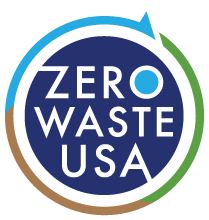Neil wrote a feature article, published in 2 parts in Resource Recovery Magazine (2024), on the history of the Zero Waste movement and its impact, highlighting the progress of Zero Waste.
Similar Posts
Book Review: Green New Deal
Summary of Neil’s review: In his review of Jeremy Brecher’s The Green New Deal from Below: How Ordinary People are Building a Just Climate-Safe Economy, Neil Seldman highlights the “little-noticed wave of initiatives” by ordinary citizens, community groups, unions, and local governments working to build a just, climate-safe economy from the ground up. Brecher’s book…
The Youth-Led NPCs of Washington, DC
Putting Low-Income Youth in Charge At the Institute for Local Self-Reliance in the early 1970s, our projects started in our own community of Adams Morgan in Washington, DC. Our first foray was involvement with the Neighborhood Planning Councils (NPCs), elected youth organizations that represented a unique local institution formed immediately after the 1968 riots in…
Zero Waste USA Announces The Recycling Cornucopia
Ruth Abbe, President of Zero Waste USA has just announced “Civic and environmental organizations, small businesses, local agencies and local officials will be able to obtain free technical assistance on waste prevention, reuse, recycling, and composting policies and programs from the Recycling Cornucopia Program of Zero Waste USA”.
Book Review: Reinventing the Supply Chain by Jack Buffington
Summary of Neil’s review: In Jack Buffington’s book, “Reinventing the Supply Chain,” he draws parallels between George Orwell’s call for local decision-making in the 1930s and a modern-day solution to 21st-century challenges. Buffington advocates for a decentralized political economy, leveraging 3-D manufacturing and Blockchain technology, alongside significant investments in STEM education. He emphasizes the importance…
World Neighbors Grant Honors Neil Seldman
World Neighbors, an international development organization that helps communities lift themselves from poverty through sustainable economic and social development, today announced the Neil Seldman Grant. This generous Grant will further World Neighbors’s work to help communities in low-income countries lift themselves from poverty while protecting the environment and increasing climate resilience.
Recycling Cornucopia Update February 2025
The Recycling Cornucopia Project (RCP) continues to work with the Minnesota Environmental Justice Table in Minneapolis, MN, Zero Waste Montgomery County in Montgomery County, MD, Mothers Out Front in Dutchess County, NY, and organized citizens in Washington County to shut down aging, polluting, and costly incinerators. In Sullivan County, NY, the RCP is assisting citizens…
